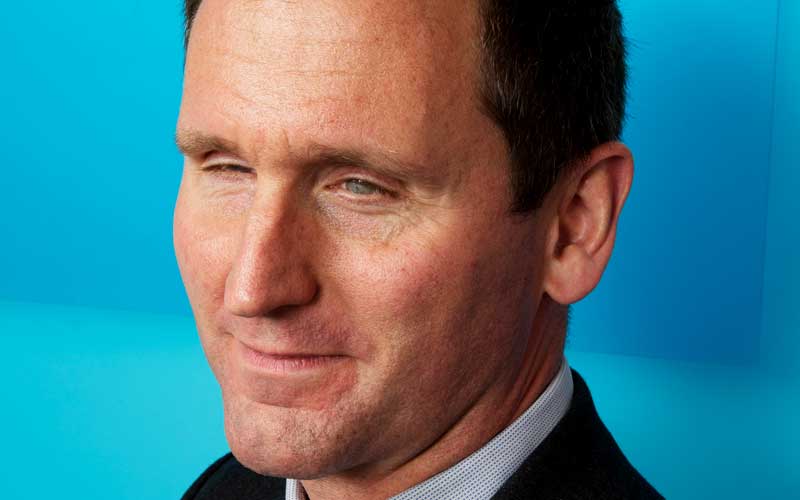The equality watchdog is to commission a major piece of research into whether the government’s welfare reforms have harmed the human rights of disabled people and other minority groups.
The Equality and Human Rights Commission (EHRC) says it wants to examine the impact of changes to the welfare system on independent living and poverty.
Its decision appears to mirror the decision of the UN’s committee on the rights of persons with disabilities to carry out an unprecedented inquiry into “systematic and grave violations” of disabled people’s human rights by the UK government, which is examining the impact of a series of welfare reforms and social care cuts carried out since 2010.
The EHRC announcement was included in the watchdog’s new business plan for 2016-17, which was published on Monday (4 April) without any publicity.
The business plan says: “Everyone has a right to an adequate standard of living, including a minimum entitlement to food, clothing and housing.”
It adds: “It is not clear whether the government’s reforms to tax, welfare and public spending have taken into account the cumulative impact of these changes on the standard of living of disabled people and other groups who may have been disproportionately affected.”
EHRC says it will focus its work in this area in 2016-17 on commissioning an assessment to “determine how changes to the welfare system have affected equality of opportunity and the human rights of people who share certain protected characteristics”.
It adds: “This will enable us to identify whether the system effectively supports all groups into work and where improvements are needed to address unintended consequences.”
Five months ago, Iain Duncan Smith, who resigned last month as work and pensions secretary, dismissed an EHRC offer to help MPs and peers understand the true impact on disabled people and other groups of his welfare reform and work bill, which has since been passed by parliament.
Letters between EHRC and Duncan Smith were published on the commission’s website, following a freedom of information request, and showed that he snubbed an offer from the watchdog to “work more closely” on the equality impact assessments the Department for Work and Pensions published alongside the bill.
In a briefing on its website published last year, EHRC said it was concerned that parts of the bill “could exacerbate, rather than reduce, existing inequalities”.
And it suggested then that measures such as reducing the benefit cap, freezing many benefit rates, and the cut of nearly £30-a-week from April 2017 for new claimants placed in the work-related activity group of employment and support allowance could breach the government’s international human rights obligations, including the UN Convention on the Rights of Persons with Disabilities.
Other areas EHRC plans to focus on this year for the first time include the launch of a new inquiry examining the provision and choice of housing for disabled people and its impact on independent living.
It also plans to review progress made by public bodies on implementing the recommendations of its 2011 disability hate crime inquiry, Hidden In Plain Sight, which concluded that they were guilty of a “systematic, institutional failure” to recognise disability-related harassment.
Other work will include a major new project that aims to address the discrimination faced by some groups – including disabled people – in accessing health and social care, and it will develop a strategy for tackling gender, disability and race pay gaps.
EHRC will also begin another major new piece of work, aimed at addressing the discrimination faced in schools by disadvantaged groups – including disabled pupils – who face lower educational attainment, identity-based bullying and harassment, and higher rates of exclusion.
Lord [Chris] Holmes (pictured), EHRC’s disability commissioner, said: “Our new business plan for 2016-17 puts a strengthened focus on improving disabled people’s lives so that they can participate fully in society.
“In the coming year, we will be starting a number of projects that will focus on removing barriers disabled people face in their day to day life.
“These include delivering improvements in relation to equality of access to health services; availability of appropriate services and dignity in care; and improving access to education and lower attainment among children with special educational needs and additional support needs.
“We will also be commissioning research to assess the impact of changes to the welfare system such as the changes to funding for independent living which have implications for disabled people’s standard of living.
“Our business plan and forthcoming strategic plan address many of the issues highlighted in the recently published House of Lords report on [the impact of the Equality Act 2010 on disabled people].
“In addition to this, we will be publishing an analysis of the main challenges facing disabled people across the country at the end of this year and our disability committee has set a number of key priorities to make a difference to disabled people’s lives.”
The watchdog’s core budget for 2016-17 has been frozen at £17.1 million, a real terms cut, although there is additional “discretionary” funding of £5.1 million available for other projects, if approved by the minister for women and equalities, Nicky Morgan.

 Two terminally-ill women to complain to UN over passage of assisted dying bill through parliament
Two terminally-ill women to complain to UN over passage of assisted dying bill through parliament Activists will protest over government’s refusal to engage with ‘deep-rooted’ mental health bill concerns
Activists will protest over government’s refusal to engage with ‘deep-rooted’ mental health bill concerns Disability minister is ‘drawing up a list’ of potential actions to address barriers
Disability minister is ‘drawing up a list’ of potential actions to address barriers